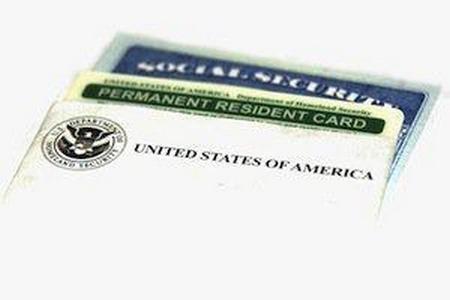Marriage and Conditional Green Cards
 When a foreign national marries a U.S. citizen, they normally either do so abroad and enter the U.S. as a married couple, or they apply for a K visa for the fiance(e) and they enter and immediately marry.
When a foreign national marries a U.S. citizen, they normally either do so abroad and enter the U.S. as a married couple, or they apply for a K visa for the fiance(e) and they enter and immediately marry.
Once the couple is married, the foreign national may apply for a green card (lawful permanent resident, or LPR) status based on the marriage. However, this is not immediately granted—in most if not all cases, a new foreign spouse of a U.S. citizen will receive what is called a conditional green card, with certain criteria that must be met after a two-year period. Only then will the conditions be removed.
Marriage Fraud is a Concern
While some might wonder why new foreign spouses are subject to this two-year conditional period, the answer is that marriage fraud is and has been a significant concern to U.S. Citizenship & Immigration Services (USCIS). While it is not often prosecuted to its fullest extent, individuals whose marriages are held to be illegitimate will face fines, possible jail time, and deportation for the foreign spouse upon the conclusion of any prison time. Some think that sham marriages are a victimless crime; however, in reality, these marriages can be a way for terrorists and foreign intelligence officers to enter the country. Thus, it is taken very seriously.
When a newly married foreign spouse applies for permanent residence based on his or her marriage, the conditional green card is usually granted relatively quickly unless there are serious red flags signifying inadmissibility. He or she must remain on that status for two years, during which time USCIS further investigates the person’s background, and also the marriage. Also, the time spent as a conditional LPR does count toward the total number of years required to naturalize, so as long as the spouse is eventually granted LPR status without conditions.
Removing the Conditions
As the two-year period is due to expire, you must apply to remove the conditions on your green card, or it will expire—it will not simply become a normal green card without any action from you. Submitting the petition along with any requested documentation will usually result in issuance of a standard green card, with a 10-year expiration date. In most cases, the I-751 petition to remove the conditions must be filed jointly, meaning that your U.S. citizen spouse must also contribute to the documentation.
If your marriage has ended due to irreconcilable differences or you have been abused or battered by your U.S. citizen spouse, you may be able to waive the joint filing requirement, as long as you are able to present adequate proof of the reason. If for some reason this is not accepted, however, it may also be possible for you to file for an immigrant visa (lawful permanent resident status) as an abused spouse under the Violence Against Women Act (VAWA), which is open to all abused spouses, children, and parents of U.S. citizen batterers, regardless of gender.
Ask an Experienced Attorney
Marriage is meant to be a happy occasion, but marrying someone who is not a U.S. citizen must unfortunately include a few extra steps in this day and age. If you or your spouse have questions about conditional green cards, the Chicagoland immigrant visa attorneys at Mevorah & Giglio Law Offices may be able to assist. Contact our office today to set up a free consultation.
 English,
English,
 Spanish,
Spanish,
 Polish,
Polish,
 Urdu
Urdu













 Make a Payment
Make a Payment



